MercoPress. South Atlantic News Agency
Tag: European Union
-
Friday, October 4th 2013 - 06:45 UTC
European Union considering punitive duties on Argentine bio-diesel
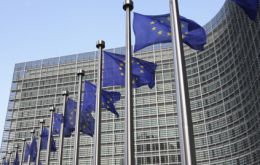
Argentine bio-diesel producers will fight European Union proposals to impose punitive duties on imports from the country, saying the move would remove its biggest export market and raise prices in Europe.
-
Saturday, September 28th 2013 - 04:57 UTC
Malvinas/Gibraltar: Garcia Margallo admits coincidences, but “no joint actions”
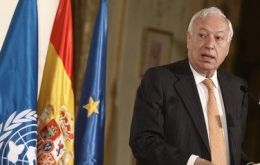
Spain will not be involved in ‘joint actions’ with Argentina regarding sovereignty claims over Gibraltar and Malvinas, said on Friday Spanish Foreign minister Jose Manuel Garcia Margallo, arguing there had been ‘misinterpretations’ in the Argentine version of the bilateral ministerial meeting and which was first denied by the Moncla Palace.
-
Thursday, September 26th 2013 - 06:01 UTC
Brazil’s main manufacturing lobby calls for urgent resumption of trade talks with EU
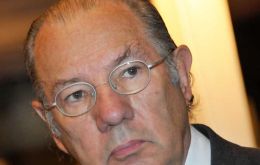
The powerful manufacturers lobby, Sao Paulo’s Industry Federation, Fiesp believes a free trade agreement between Mercosur and the European Union is very much needed so that Latam’s largest economy climbs out from the “commercial isolation” in which it currently stands.
-
Thursday, September 26th 2013 - 05:28 UTC
EU team begins collecting data on Spain/Gibraltar border crossing row
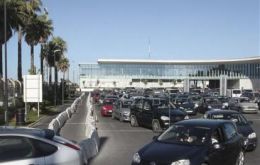
A team of European Union inspectors are visiting Gibraltar to investigate a border row that has caused diplomatic tensions between the UK and Spain. London and British Overseas Territory Gibraltar complained to the EU that Spain's over-zealous checks on border traffic were holding up workers and tourists. Spain accuses Gibraltar of not doing enough to combat cigarette smuggling.
-
Wednesday, September 25th 2013 - 05:34 UTC
Germany’s ‘Mom’ Angela no darling for the EU Mediterranean members

Southern Europeans are facing four more years of ‘mutti’ (Mom) Angela Merkel — whether they like it or not. Majorities of 82% in Spain, 65% in Portugal and 58% in Italy repudiate the German leader’s handling of the Euro area’s debt crisis, blaming her for drastic cuts in social services, recession and record unemployment, according to a German Marshall Fund poll released last week.
-
Tuesday, August 27th 2013 - 01:05 UTC
EU will decide if cement blocks dumped in Gibraltar Bay is an environmental crime

Brussels will determine whether the 70 cement blocks dumped in the Gibraltar bay are legal or not, according to the European Union spokesperson Olivier Bailly who anticipated an EC fact finding mission can be expected next month to visit the controversy area.
-
Wednesday, August 14th 2013 - 20:16 UTC
EU climbs out of 18-month recession led by Germany and France, but still fragile
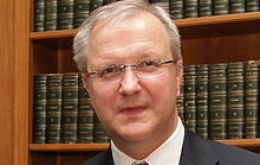
European stock markets mostly rose on Wednesday after official data showed that the Euro zone had finally escaped from a record 18-month recession. The Euro-zone climbed out of recession with surprisingly strong growth of 0.3 percent in the second quarter led by Germany and France, announced the European Union.
-
Monday, August 12th 2013 - 18:06 UTC
EU confirms no block-to-individual Mercosur member trade negotiation has been requested

The 28-country European Union underscored the potential benefits of a free trade agreement with Mercosur and revealed that so far no country member of the group has requested to a bilateral negotiation.
-
Monday, August 12th 2013 - 18:03 UTC
Brazil urged for agreement with EU, since next year it will lose trade preferences
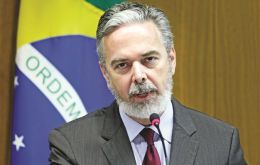
Brazil, Latin America‘s biggest economy, is planning to try to negotiate a separate trade deal with the European Union, Foreign Minister Antonio Patriota said in remarks published Monday.
-
Saturday, August 3rd 2013 - 01:41 UTC
EU FTA agreements with Colombia and Central America became effective August first

Free trade agreements, FTA, signed by the European Union with Colombia, and with Central American countries Honduras, Nicaragua and Panama became effective August first as part of the EU strategy to eliminate tariffs on trade with Central American and the Andean region.
